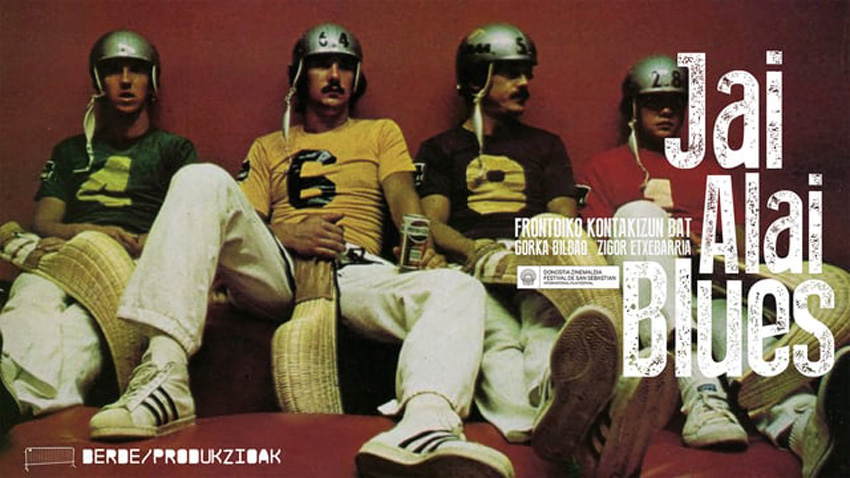During the 70s Jai Alai players were like rock stars in places like Florida. They made money hand over first, and rubbed elbows with movie stars and they were invited to all the festivals. Today, very little remains from that world, and the sport of Jai Alaii has lost its shine, above all in the US. The documentary Jai Alai Blues puts those pelotaris in front of the camera and their stories, anecdotes, and adventures tell the story if frontons in Mexico, Cuba and the US from the inside. Tomorrow it can be seen at the Azkuna Zentroa in Bilbao, and on November 6 it will arrive to theaters all over the Basque Country.
Bilbao, Bizkaia. The fascination for cesta punta and the men from Gernika, Gorka Bilbao and Zigor Etxeberria are at the origin of the documentary, Jai Alai Blues that after being shown at the Zinemaldia in Donostia, will be shown tomorrow in Bilbao. The documentary travels the frontons of Mexico, the US, and Cuba, interviewing the players from now and then, and provides a bitter sweet look at the world of Jai Alai.
“Zigor was at Jai Alai school at a very young age and he had hear a thousand stories and had the itch to tell about this world,” director Gorka Bilbao said, who did another documentary in 2010 about Basques in the US called Amerikanuak.
This time filming too him to the US (Miami, Orlando...), Cuba and Mexico. “As a personal project, we recorded a ton of interview. One pelotari told you about another, and this one told the story about that one…in the end the hardest was decided what to take out,” he explains.
Years of Ecstacy
The documentary provides firsthand accounts of the Glory years of Jai Alai. “In the 50s the pelotaris were very well known. They were known as freeloaders, who were out all night, in the world of betting. In the 70s it was total ecstasy. They hung around with actors, and were invited to parties, bets, casinos…,” Bilbao says.
Not much is left of that world, with Jai Alai being pushed out by the competition with other sports and other bets, above all in the US. That is where the blues in the title comes from, this nostalgia that the pelotaris have when talking about it. “In the US cesta wasn’t promoted as a sport, but as a game to be bet on and as a party. The people didn’t care what pelotari they were going to see, as long as he was very famous,” Bilbao said. “In other countries, like Mexico, the essence remained, and now there is a project to open a big fronton in Mexico City in 2016.
At the Basque clubs
The documentary will be in theaters in Bilbao, Donostia, and Gasteiz on November 6, and later it will be presented in an international film circuit. Bilbao says that the next phase will be showing it in Basque clubs around the world, just as Amerikanuak.
In that case we will show the film at Basque clubs in the US, since it is about Basques in the West, but I think that the world of Jai Alai interests the entire Diaspora in general,” he concludes.
If you would like to show this documentary in your Basque Club, e-mail info@berdeprodukzioak.com.






 Send to a friend
Send to a friend Add comment
Add comment








